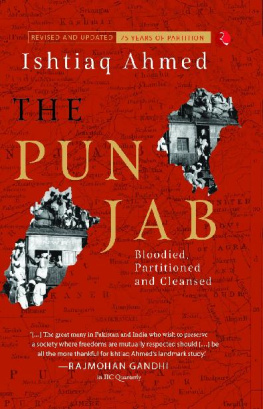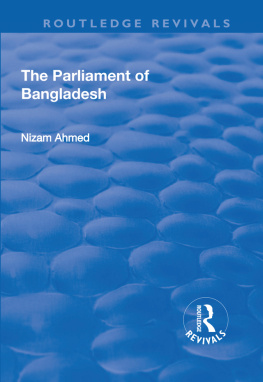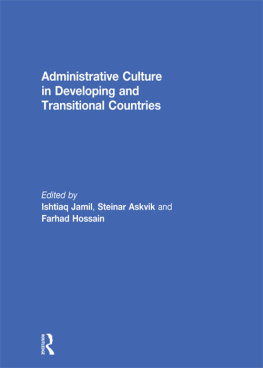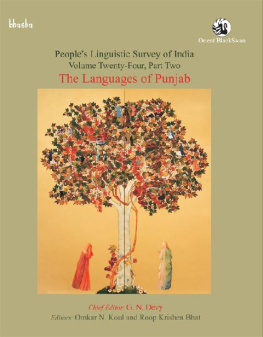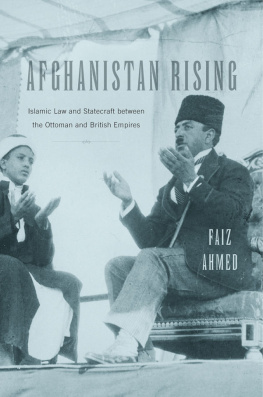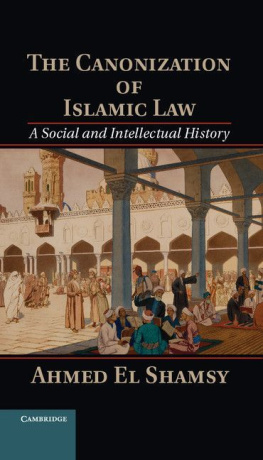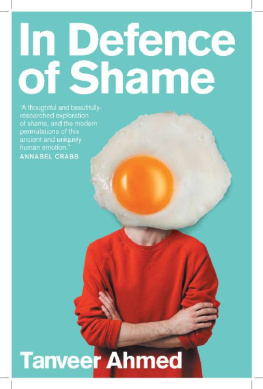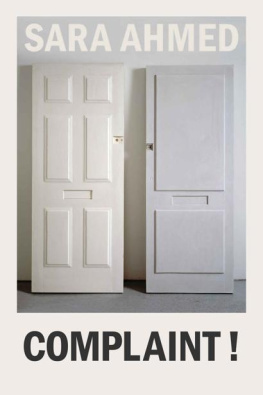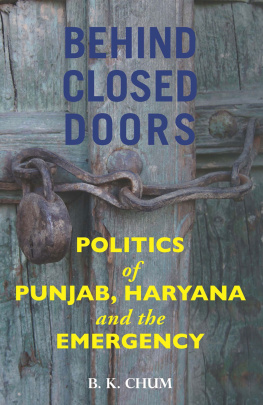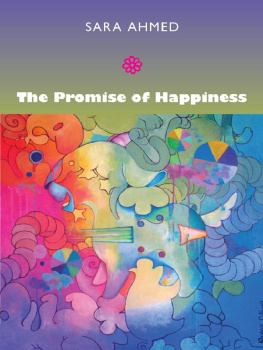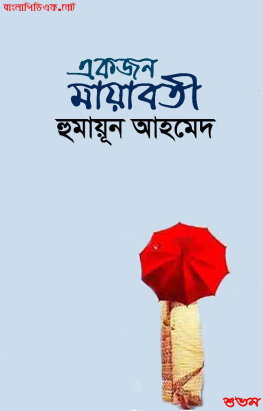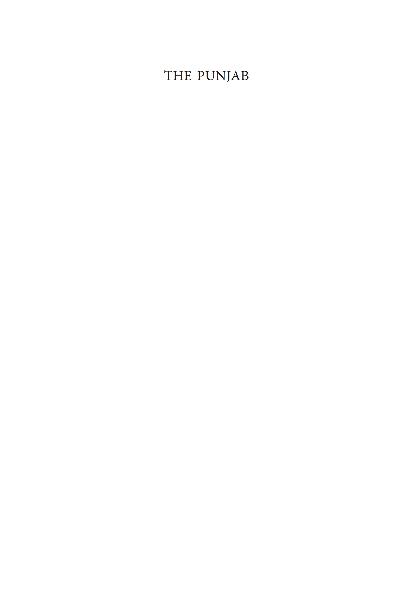
Praise for the book
Ahmed brings us closer to both the political and human story of partition with all its paradoxes and meanings.
Nonica Datta in The Indian Express
There are four unique contributions that Ishtiaq Ahmed makes to the large corpus that studies Partition. One, he provides a theoretical underpinning to understand why people living peacefully for many generations can become so aggressive and hostile to each other all of a sudden. Two, he gleans much important information from official communications. Three, he interviews a large body of people who witnessed the carnage of Partition, evaluates their memories for veracity, provides us with one of the most comprehensive archive of what people went through at the time of Independence. Finally, he brings together all this information to provide us with, perhaps for the first time, a comprehensive account of what the people of the Punjab went through during Partition. [] Ahmed writes lightly yet manages to remain magisterial.
M. Rajivlochan in The Sunday Tribune
Describing how 32 days demolished the vibrant Punjabi legacy of pluralism and composite-hood of 500 years affecting even the grassroots level is a story rewoven and told with scientific precision. This story is recorded blow-by-blow in this well-researched work. This makes this voluminous work one of the most informativediscursive resource for yesteryears as well as today and indeed for tomorrow. [] The outstanding feature that this book presents lies in its use of an extensive repertoire of oral history, thus making a difference; this ultimately makes it a masterpiece.
Dilip Malik in India Quarterly
Ahmed may not win agreement in India or in Pakistan (the book has been published in both countries) for every conclusion of his [] But I doubt that anyone will question Ahmeds empathy with all sides in 1947s Punjab tragedy [] A search for the facts has resulted in this book, and the honest way in which the search was carried out may have imparted to the book a role in the healing process for which the subcontinent waits. [] The great many in Pakistan and India who wish to preserve a society where freedoms are mutually respected should [] be all the more thankful for Ishtiaq Ahmeds landmark study.
Rajmohan Gandhi, in IIC Quarterly
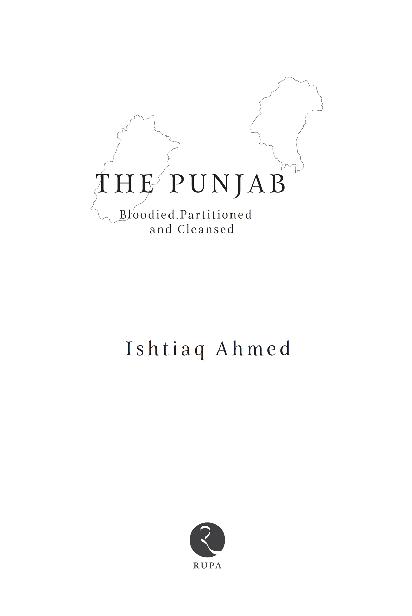
Published by
Rupa Publications India Pvt. Ltd 2011
7/16, Ansari Road, Daryaganj
New Delhi 110002
Copyright Ishtiaq Ahmed 2011, 2013, 2022
First published in hardcover in 2011
First published in paperback in 2013
The views and opinions expressed in this book are the authors own and the facts are as reported by him which have been verified to the extent possible, and the publishers are not in any way liable for the same.
All rights reserved.
No part of this publication may be reproduced, transmitted, or stored in a retrieval system, in any form or by any means, electronic, mechanical, photocopying, recording or otherwise, without the prior permission of the publisher.
ISBN: 978-93-5520-578-0
First Impression 2022
1 2 3 4 5 6 7 8 9 10
The moral right of the author has been asserted.
This book is sold subject to the condition that it shall not, by way of trade or otherwise, be lent, resold, hired out, or otherwise circulated, without the publishers prior consent, in any form of binding or cover other than that in which it is published.
To my wife Meliha.
She is the bedrock of our family, from whom I and our boys, Sahir and Selim, and their partners, Ice and Helena, always draw strength and support. My granddaughter (Sahir and Ices daughter) Celeste Yasmin (born 21 August 2017) is the latest member of the family.
CONTENTS
Stage 2: The Endgame Unfolds
24 March 194714 August 1947
Stage 3: Ethnic Cleansing
15 August31 December 1947
PREFACE
MARKING THE 75TH ANNIVERSARY OF THE PARTITION OF THE PUNJAB
The publication of the new edition of my book on the 75th anniversary of Partition is a great milestone. Some more oral histories have been added to the main text; a few are presented in this article. Most of the oral histories on Partition that I recorded between 1999 and 2011 are now available for hearing as a part of the Partition Archives of the Lahore University of Management Sciences (LUMS) website. Some are available at the Amritsar Partition Museum.
Over the years, interest in knowing what happened in 1947 has only grown and is likely to grow even more. New generations of Punjabis want to know why the violence unleashed in their province dwarfed the violence elsewhere in the subcontinent when the curtain on the British Empire was finally drawn.
I cannot say with certainty when the idea of researching the partition of the Punjab first occurred to me, but it was something that had piqued my curiosity from early childhood. I grew up listening to elders describing some of the events that took place on Temple Road, Lahore, where I was born. That canvas expanded over time as I went around Lahore on my bike, because I was deeply in love with my city of birth and always thirsted for more knowledge about its past. The bike rides inevitably took me to localities which were once HinduSikh majority areas but from where virtually all traces of HinduSikh presence were now gone. Even as a teenager, I could figure out that such people would not have left their homes and localities willingly or happily. Only in the famous shopping locality of Anarkali, almost entirely studded with shops owned by Hindus before Partition, did Beliram and Brothers continue as major dispensers and chemists till the 70s. It is still a mystery how that shop and its Hindu owners survived so long.
Post-Partition Lahore also had many examples of Muslim suffering. My earliest memory of it is associated with an old man who lived in a small shop in front of our house. He had no proper home. He was a refugee from the other side of the old Punjab. He spoke a rough type of Urdu in an accent I later learnt was typical of what is now Haryana. Prior to Partition, it constituted the easternmost portion of the united Punjab. Every evening, he would start cursing and abusing the whole world. Street urchins would taunt him and knock at his door. When he came out, they would run away. He was known as Chacha Churanji Lal, suggesting that he was a Hindu. Actually, he was a Muslim. Some said his real name was Lal Din, others, Lal Mohammad.
I learnt that he had married late, his wife had died at childbirth and he had brought up his only son all by himself. That boy had been killed in front of him during Partition. The trauma rendered him a mourner forever, but also, obviously, led to some serious mental problems. In 1953, when sectarian disturbances against the Ahmadiyya community (a religious community claiming to be Muslims but constitutionally classified as non-Muslims in Pakistan since 1974) took place, curfew was clamped on Lahore. Every evening, soldiers sitting in trucks would patrol Temple Road. The vehicles moved very slowly. They had guns ready to shoot at miscreants. It was a scary scene. However, the old man was oblivious to the danger they posed and continued with his daily barrage of abuses. That greatly angered the military, who wanted to teach him a lesson, believing his invective to be directed at them. However, elders of the area intervened just in time and told the soldiers about his grief. Thereafter, they ignored him. Eventually, he died.



